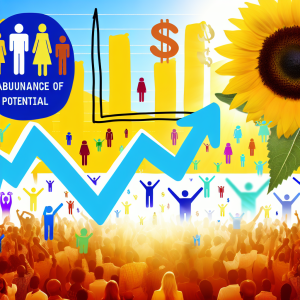As the U.S. economy grapples with inflation, geopolitical tensions, and cautious consumer spending, Black entrepreneurs are zeroing in on one pivotal event that could redefine their financial trajectory in 2024: the Essence Festival of Culture in New Orleans. Drawing nearly half a million attendees and generating around $1 billion in economic activity, Essence Fest is far more than a cultural celebration—it’s a vital economic engine and a barometer for Black consumer confidence.
For entrepreneurs like Rochelle Ivory, founder of On the Edge Baby Hair, Essence Fest is nothing short of a lifeline. “It’s my Black Friday,” she says, underscoring how this weekend represents the bulk of her annual revenue, fueling reinvestment and growth. Yet, Ivory candidly reports a 30% dip in sales year-over-year, reflecting broader economic caution among Black consumers. Brittney Adams, owner of Focus and Frame eyewear, echoes this sentiment, noting that political and economic uncertainty is prompting many to hesitate between saving and spending.
This tension between economic anxiety and opportunity is critical for investors and advisors to understand. Federal Reserve data shows a nuanced picture: Black workers saw a 5% increase in median weekly wages in Q1 2024, and unemployment is at a historic low of 6%, though still above the national average of 4.2%. Yet, these numbers don’t capture the palpable unease many Black Americans feel amid ongoing political and cultural shifts since 2016.
John Hope Bryant, CEO of Operation Hope, offers a powerful reframing: “Never let a good crisis go to waste.” He argues that the current moment could unify Black America economically in ways unseen since the 1960s, urging a pivot from social activism to “Black capitalist matter.” This shift is already influencing consumer activism, exemplified by Pastor Jamal Bryant’s organized boycott of Target over diversity and inclusion rollbacks—a stark reminder that Black consumers wield an estimated $2.1 trillion in spending power by 2026, a force investors cannot ignore.
What does this mean for investors and financial advisors? First, it’s time to recognize that Black economic empowerment is not just a social imperative but a strategic investment opportunity. Funds and portfolios that integrate Black-owned businesses, tech startups led by Black entrepreneurs, and ventures aligned with community economic uplift are likely to see outsized returns as this market segment mobilizes.
Second, the rise of tech-focused financial education and entrepreneurship events—like Earn Your Leisure’s Invest Fest in Atlanta—signals where the future lies. With AI, crypto, and real estate at the forefront, and a new $125,000 pitch competition backed by venture capital firm Open Opportunity, the pathway to scaling Black-owned businesses to $100 million or even $1 billion valuations is becoming clearer. Advisors should guide clients to explore these emerging sectors aggressively, especially given the tectonic shifts AI promises.
Similarly, the National Black MBA Association Conference in Houston is making AI education and financial literacy central to its agenda. Interim CEO Orlando Ashford calls AI a “tsunami of change,” emphasizing that those who embrace it will thrive, while laggards risk obsolescence. This is a clarion call for investors and entrepreneurs alike: integrate AI literacy and innovation into your business and investment strategies now.
Here’s a unique insight: consider the potential of “pocketbook protests” as a revolutionary investment signal. Consumer boycotts linked to social and political issues are increasingly influencing corporate policies and stock valuations. Investors who monitor these movements—like the ongoing Target boycott—and align their portfolios accordingly could capitalize on shifts driven by consumer activism.
Looking ahead, the second half of 2024 and beyond will likely see intensified efforts to harness Black economic power through technology, education, and targeted investment. Advisors should proactively seek partnerships with organizations like Operation Hope and the Global Black Economic Forum to stay ahead of trends and identify high-impact opportunities.
In summary, the Essence Festival and related economic forums are more than cultural milestones—they are critical inflection points signaling a new era of Black economic empowerment. For investors and advisors, the message is clear: embrace this shift with strategic capital allocation, tech-focused education, and a nuanced understanding of consumer activism. The time to act is now, or risk being left behind in a rapidly evolving landscape where Black wealth creation is poised to accelerate like never before.
Sources:
– Federal Reserve Economic Data (FRED)
– CNBC interviews with Orlando Ashford, National Black MBA Association
– Operation Hope official statements and John Hope Bryant commentary
– Essence Festival economic impact reports
Source: Essence Fest leads a summer of events for Black entrepreneurs

